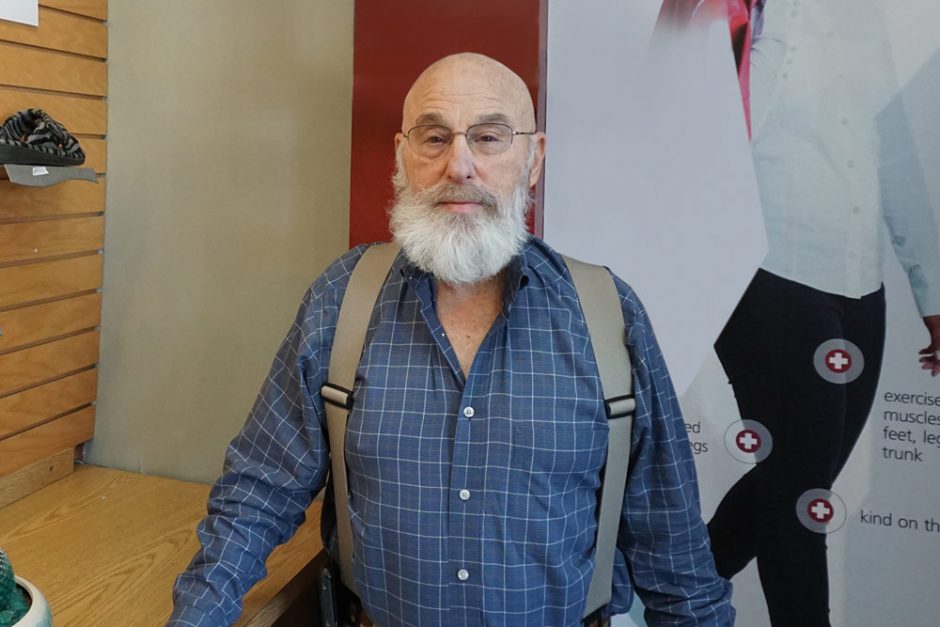 Dear Terry, You are only in the 6th grade right now, and you just got in trouble again. It seems like no matter how hard you try, you just won’t settle down and do your schoolwork. Well, much later in life, when you’re a parent and your twin boys are diagnosed with attention deficit disorder, you’ll realize you suffer from it too. Taking medication will help you focus.
Dear Terry, You are only in the 6th grade right now, and you just got in trouble again. It seems like no matter how hard you try, you just won’t settle down and do your schoolwork. Well, much later in life, when you’re a parent and your twin boys are diagnosed with attention deficit disorder, you’ll realize you suffer from it too. Taking medication will help you focus.
When you reach high school, however, you’re still getting in trouble. You have below average grades and make too many rash decisions. But one thing you have going for you is that you’re stubborn; you don’t quit. Your family is in the shoe business, and you start selling shoes at their store in downtown Little Rock, AR. You find out you like it, and you’re pretty good at it. Your father starts teaching you a bit about running a shoe store, and he even lets you go to St. Louis by yourself to buy some closeouts. Soon after, you get a call telling you that your father is not feeling well, and you attend your first shoe show. It’s a wonderful experience until you return home to learn that your dad has cancer. He spends the rest of his life—the next 18 months—trying to teach you about life as well as how to manage a shoe store. After your father passes, your mother sells the store, and you land a job as an assistant manager for Butlers in Detroit. It feels like starting over, but you don’t quit.
Sometimes your impulsive behavior turns out well. One day, for example, you spot a pretty woman looking in Butlers’ window. You think you don’t stand a chance, but you go out and ask for her phone number anyway. Surprise! She gives it to you! You are still married to that pretty woman over 40 years later. Together, you move on from Detroit, progressing steadily in the shoe business. You work in an independent shoe store, manage a shoe department for a major department store and finally, with the help of your family and friends, become part owner of a shoe department in a small department store in Pearl, MS. You and Sherie have twin boys and soon after, with a loan from a family friend, you open your own store in Ridgeland, MS. What could possibly go wrong, given all your experience? You believe you can’t miss.
But soon you’ll wish you had paid more attention in school—and learned more of what your father tried to teach you. You realize how critical building a firm foundation is to almost any business venture. You struggle but manage to survive the next 25 years. Then disaster strikes. You lose your No. 1 vendor, business is terrible, you can’t pay the bills and you don’t know what to do. You don’t see how you can dig yourself out of this hole, but you still don’t quit. Finally, you ask for help from a consultant suggested to you by the National Shoe Retailers Association. He helps you survive, teaching you the importance of building systems to help you run a profitable business. He forces you to see things as they really are, so you make tough but better decisions. Business improves, plus you have a great wife and kids. Life is good. While there are bumps in the road, now you manage them better. You learn that planning is better than reacting. Thinking long-term is more rewarding than just thinking about today.
Now your store is more than 30 years old and things are going pretty well—despite the fact the shoe business has never been easy. You and Sherie are working hard and showing a small profit. Even with all the mistakes you’ve made over the years, you’re still in the game.
Then you come across kyBoot, a brand that’s new to America. It’s comfortable, therapeutic and selling well. You’re so impressed that you do something you never thought you’d do: You apply for a job as a sales representative—and you get it! In your new side gig, you work with some of the best shoe stores in the country, seeing how they operate. You learn firsthand the benefits of building a solid foundation, the value of long-range planning and the importance of constantly trying to improve a store. You incorporate these lessons into your store. Most of all, you discover that, like yourself, people in this business—on the retail and wholesale sides—generally love what they do and don’t want to do anything else. In good times and bad, you discover that it takes a lot to put a true Shoe Dog down because we just don’t quit!




